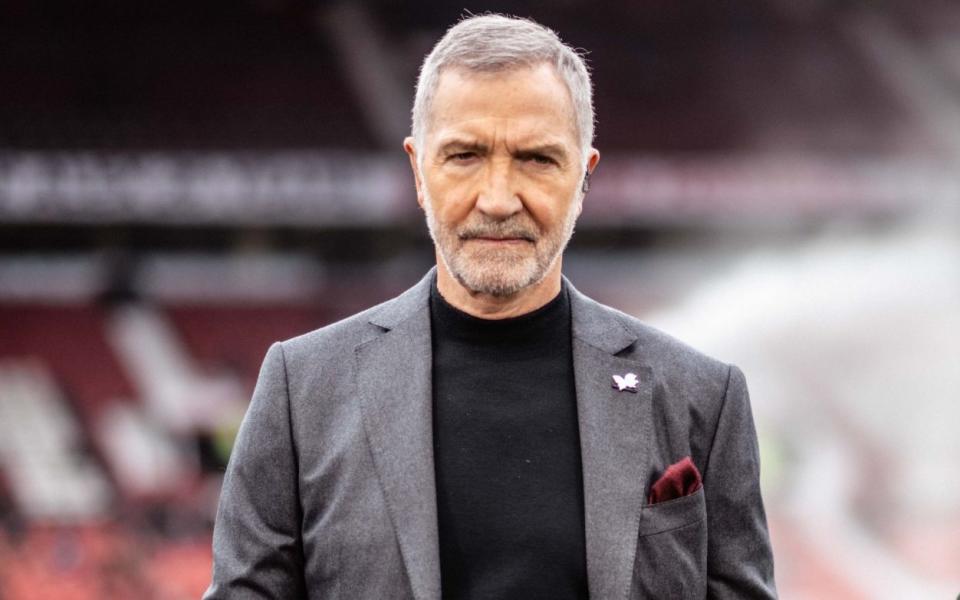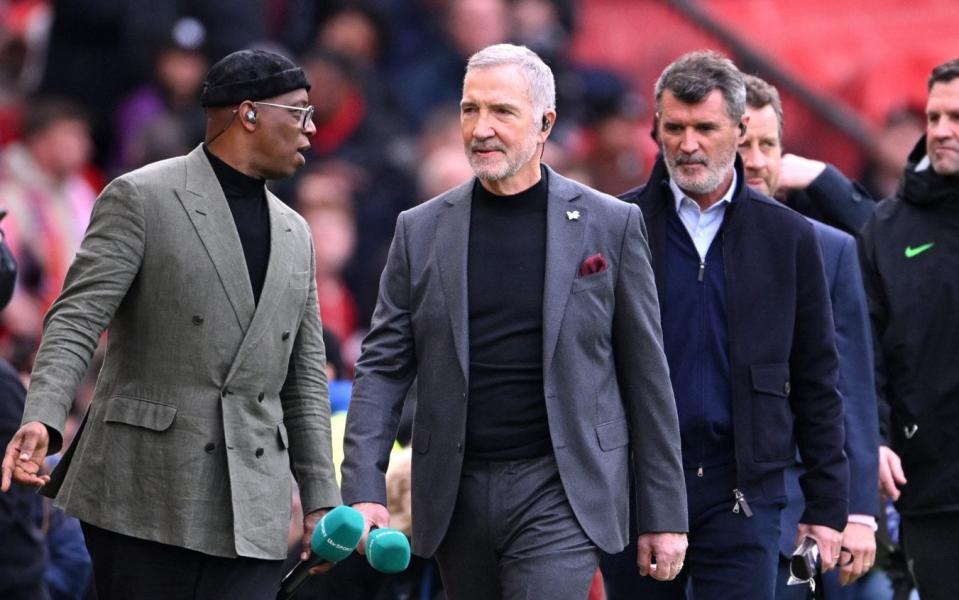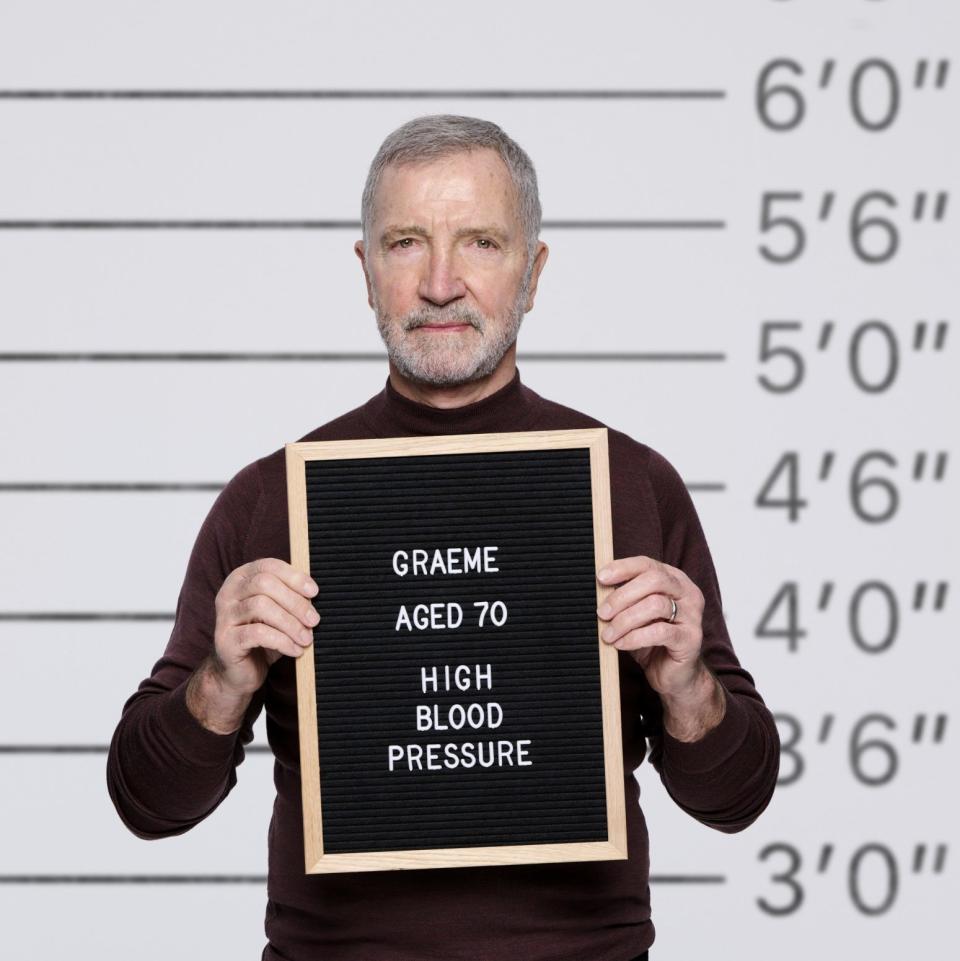Graeme Souness interview: Pundits must be very careful what they say these days

As Graeme Souness sits back on his sofa, the conversation turns to whether you need to have won a European Cup to be a good pundit. “Anyone can get lucky once,” he jokes. He is reminded that it was more than once, though, it was three times in his own career. “Beyond that it’s not luck.”
Those victories at Wembley, Parc des Princes and Stadio Olimpico, plus five league titles, puts Souness in a position of authority when it comes to football broadcasting. However, his 15 years at Sky Sports was defined by what was said, rather than his trophy haul and illustrious playing career.
In his view, it is getting harder to be a pundit in modern football. To use the right words while still being honest and critical when it is required. At 70, Souness has not taken a backwards step in that regard. He was back on screen for ITV’s coverage of Manchester United’s FA Cup dramatic win against Liverpool before the international break, and he will be at the Euros for Scotland’s opener against hosts Germany.
“I will never retire,” Souness tells Telegraph Sport. “I will be retired when the phone stops ringing.”
And in Souness’s mind, there is one key driver behind his longevity. “Be honest,” he says. “I know we have to be very careful with what words we choose now, but to be as honest as you possibly can, consistently. And just be real. That is becoming more and more difficult for the guys who are doing it now.”
But, despite his own successes as a player and pundit alike, Souness does not buy into the theory that you must have achieved it all to analyse the very best.
“That is like saying Arsene Wenger or Jose Mourinho shouldn’t have been great managers,” he points out. “Winning a European Cup doesn’t qualify you to be good at anything.
“There are people I will listen to. There are people I think ‘no, you have nothing I’m going to learn from you at all’. That is only me. When you watch people on the telly I’m sure you’re exactly the same. I’m not different. There are people I will listen to and people I won’t listen to.”
It has been 10 months since he was last on Super Sunday, wearing an immaculate suit and telling viewers his opinions, regardless of whether they were opposed to his colleagues. Souness says it felt great to be back with ITV last week, not that he has been waiting by the phone for a call-up. His radio work, a podcast and charity work has kept him even busier than when he was with Sky Sports. There has been no time to reflect on being at the centre of the Premier League going stratospheric during his time as a broadcaster. His schedule is hectic for that, but is happy to confirm there has been no regrets over anything said on air over the last two decades.

Arsenal came in for plenty of criticism down the years, with his “team of son-in-laws” assessment particularly damning. His frustration with Paul Pogba will be remembered, too. It was borne out of seeing a player with attributes that was not applying himself to winning matches. But Souness takes no joy from the France midfielder’s woes that include a ban for doping offences less than two years after leaving Manchester United without helping them mount a title challenge.
“With Pogba, I was frustrated with him because I saw someone who had all that talent, all that physical prowess that you see on a magnificent athlete, but had a stinking attitude,” said Souness. “I could talk now for 10 minutes on it but the bottom line is, he didn’t work hard enough. The worst thing that could have happened to him was winning the World Cup as a young man. That put him firmly in a great big comfy armchair. He was no longer up for doing the hard yards, he thought it was all about him doing clever eye-catching things on the football pitch.
“Every time I played I had one thought in my head: I’m going to be better than the guy I’m playing against. I’m going to have a better day than he does. And the starting point for that is working harder than him. I don’t think Paul Pogba ever had that attitude. It was all about showing how clever and cute I can be. It would have been very easy to play against him because he never worked on you. He didn’t stop you playing.
“I take no pleasure in what has happened to him because he was an extremely talented young man who had everything to be remembered as one of the great midfield players in world football. But he won’t be remembered for that unfortunately. He will be remembered for being banned for drugs and being a near-miss.”
Souness still rides the highs and lows of the game, kicking every ball and feeling every tackle as if he was still playing.
“I’m not one for looking back. I’m 70 but I wake up some mornings thinking I’m 21 again,” he said. ”My wife will wake me up in the middle of the night and say ‘stop kicking me’ because I’m dreaming I’m still playing football.”
The reason Souness is speaking so openly about his TV career is that he is heavily involved in an NHS campaign to tackle high blood pressure. He was diagnosed at 38 with hypertension, which contributed to him having open heart surgery. Souness is as passionate about the campaign as he is about football, reeling off the stats: the estimation is that 4.2million in England are undiagnosed.
“Is there anyone better than me to talk about it? I don’t know,” he said. “When I was manager at Liverpool I was doing everything the players were doing in training except playing on a Saturday afternoon. It kids you. You can feel great but it is a slow burner and the sooner you address it when you get to 40, you have to get on top of it.”

You would think the stresses of live TV would not suit his condition, but Souness points out the condition is easily treatable with a daily pill. Not that his blood pressure was elevated when on air, as it all felt natural. Management was a different animal.
“I don’t feel my blood pressure would change very much from being on air and not being on air. But I guarantee it would change when I was a manager on matchdays,” he said. “If you are a pundit. The last thing people want is people agreeing all the time. I never said anything without being able to back it up. It wasn’t just to grab a daft headline. I would like to think I could always back it up by explaining why I said that. There’s nothing, no. I can’t think of anything where I thought ‘I wish I hadn’t said that’.”
Modern day football still gets Souness excited, but there is plenty to dislike, too. And when he does not like what he sees, he will continue to say so.
“Some of the games are sensational. But it’s a 50-50 thing,” explains Souness. “Some games I’ll settle down to watch and I see midfield players passing it square all the time. It does nothing for me and I’ll turn over and watch something else. Other games just grab me and I’m glued to it. Maybe I’ve always been like that.”
Watching football with a critical eye is just part of being Graeme Souness.
Graeme Souness is supporting a new national NHS campaign to find the ‘missing millions’ with undiagnosed high blood pressure, which usually has no symptoms. High blood pressure is one of the largest known risk factors for cardiovascular disease and can lead to heart attacks, strokes, kidney disease or vascular dementia. Find a pharmacy that offers free blood pressure checks near you for anyone aged 40 and over, by searching “pharmacy blood pressure check” or visiting the NHS website.

